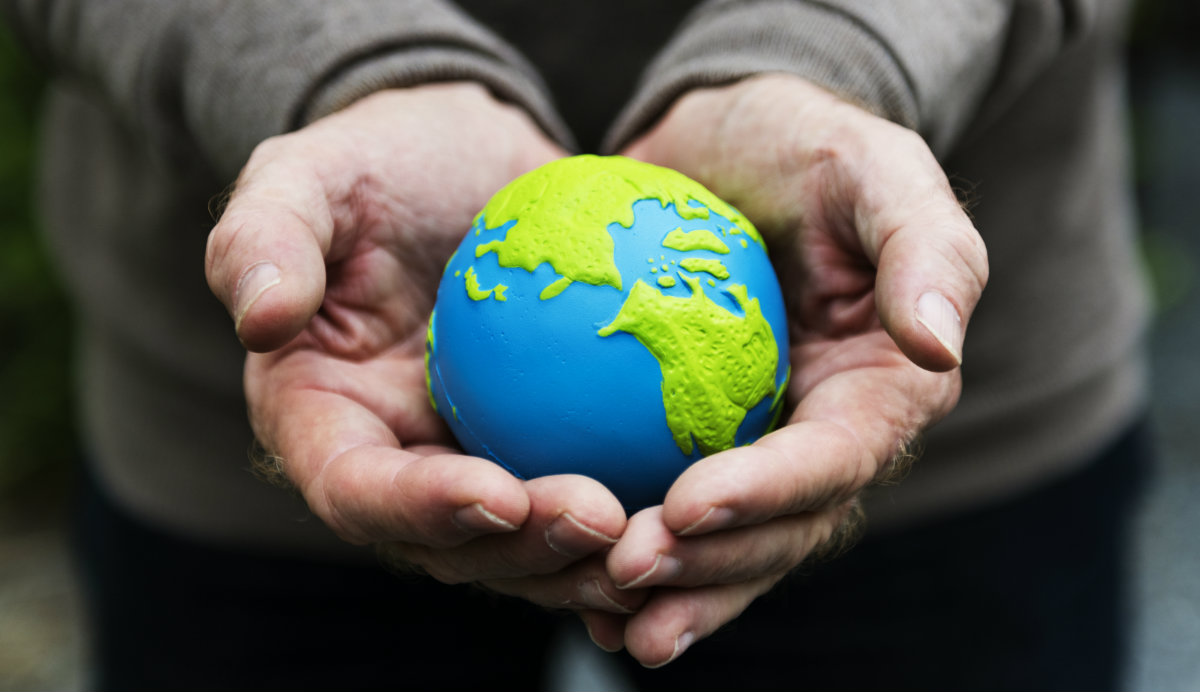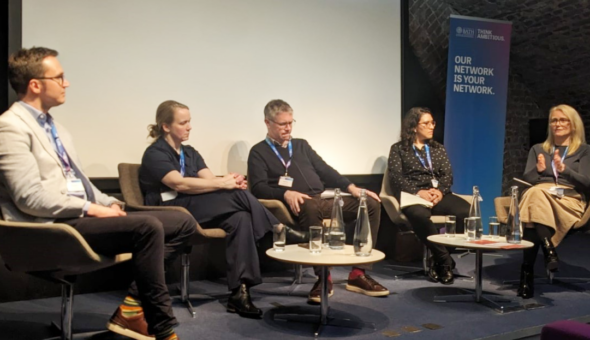Businesses play an instrumental role in securing a sustainable future, but impact can be intensified if we create a stronger link between the environmental agenda and that of economic inclusive growth. All people are agents of change: as consumers and as employees and entrepreneurs. In this piece, University of Bath MBA graduate Pernille Moeller sets out her agenda for the coming Earth Year.
April 22nd is Earth Day: a well-established event celebrating the wonders of our planet and advocating conservation. Earth Day is a call for a global movement and its commitment to inclusiveness should inspire business’ sustainability agenda. It is time for businesses to proactively work for both planet and people.
Taking a holistic view
To increase impact, businesses must adopt a holistic view of what it means to take care of our planet and all of us who live on it. Businesses should no longer chose between focusing on social responsibility or environmental protection, but rather embrace the idea that social and environmental health is inter-linked and indeed inter-dependent. The quest for a sustainable business must not be limited to the elite.
Ultimately, every product, every strategy, every innovation needs to be planned and executed with an eye to both societal and environmental sustainability. That must be our end goal.
What needs to happen
However, to start moving in the right direction I suggest two areas of attention for the coming Earth year:
- First, green(er) products need to be available at lower price points. It should be within anyone’s reach as a consumer to make a more sustainable choice.
- Second, most green businesses can become better at engaging people who are currently held back by marginalisation.
Accessibility to greener products
Let us start with availability of products. Every Thursday morning a brown box awaits me on my front step. It is packed full of locally sourced organically grown produce. Good for my family and good for the environment - less ideal for my wallet. £20 a week for veggies is a lot of money for most and it is symptomatic of a larger problem. Choosing to eat organic and local produce is often substantially more expensive than a traditional industrially produced food products, just as a Patagonia jacket is 10 times the prices of a Walmart equivalent.
There are substantial parts of our society that cannot afford to be part of the shift to more sustainable ways of living. With this in mind, it's pertinent that the focus of this year's Earth Day is on ending plastic pollution. Too often, the more sustainable, plastic free option is more expensive than the pre-packed bargain bag, as illustrated perfectly here:
🤔 @Morrisons Pack of 3 in plastic 97p. Single no plastic 60p each. How can we make better choices about our single use. This needs addressing.
The future of our planet depends on us all working hard together.
Step up your game please.
We out here trying. pic.twitter.com/o9iNUbCPd1— #2minutebeachclean 💙🌍 (@2minbeachclean) April 18, 2018
This is a huge problem, but there are solutions out there. For example, we have seen impactful (often app-based) initiatives to combat food waste that also offer cheap food. To achieve a true paradigm shift towards a circular, low-waste and low-carbon consumer society, the green economy must be the mainstream economy.
Marginalisation
Those on the margins of the modern economy struggle disproportionally with the adverse effects of climate change and environmental degradation. That is true on a global scale, but it is also true in our own communities here in the UK. If you are homeless, extreme weather events like the ones we have experienced in the past winter become life or death events, not just inconveniences. This leads me to the second point of action.
Several projects have proven that the targeting of marginalised groups is an important vehicle for green growth in underserved areas. It is well proven that being disconnected from nature is bad for your mental health, but the reverse is also true. Offering volunteering and training opportunities to members of our community that are struggling raises awareness and prompts behavioural change in segments that are not currently engaged in a green agenda. It can also provide skill training for the new economy. Instead of being objects of change, marginalised groups can (and should) be agents of change.
Inclusiveness is important for two reasons. First of all, it is the ethical thing to do. We need to take care both of our planet and its people. Secondly, green growth is a numbers game. The more who produce and consume sustainably the larger the impact. Sustainable business should not be a task for the few.
About the author:
Pernille runs a social enterprise in East London, aimed at marrying inclusive growth and prosperity with environmental sustainability. Originally trained as a political scientist, she is a graduate of the Bath MBA.
Header image by rawpixel
Respond



